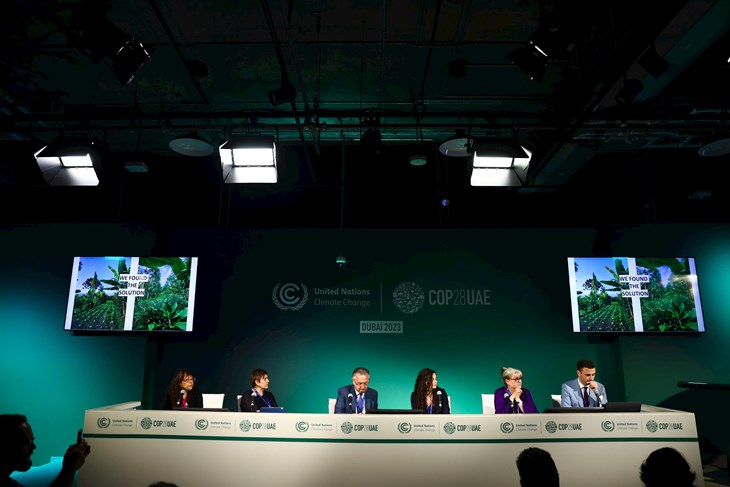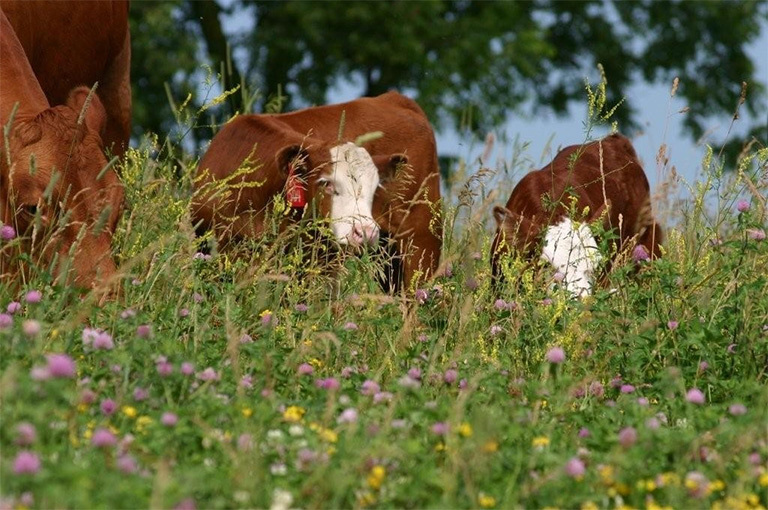
Speaking at a COP28 side event this week, Our Global Director of Campaigns and Policy Advocacy, Debbie Tripley, warned that we’re heading towards a tipping point for our planet if we don’t address the way we produce our food.
On Day 4 of COP28, 4 December, at an official side event we co-hosted called Food systems transformation: Elevating healthy diets & protein diversification as climate solutions, Debbie joined a diverse panel of speakers exploring how countries can put food systems transformation into policy action in a meaningful way.
Together, they explored the ethical and moral issues around our global food system, in terms of its impact on animals, people and the planet, as well as the clear health impacts of the way we currently produce and consume food. In addition, they considered how we can effect real, lasting change for a more positive future, working with nature, not against it.
The food we eat will shape the future we want
In her presentation, Debbie highlighted the huge lack of compassion that exists for sentient animals in food production, as well as the way we farm them having a disastrous impact on our planet and climate. In addition, she raised concerns that we are heading towards a tipping point for the planet and humanity if we don’t address this urgently, highlighting the need to restructure public and economic policies to ones that promote balanced and sustainable diets at both a national and global level.
Debbie, who is leading our small delegation at the Dubai climate conference, commented: “The science is there. We need to thread the needle of balanced and sustainable diets throughout multiple policy areas - to ensure a more sustainable, healthy and just future for animals, people, and the planet”.
Other speakers at the event included: Rabbi David Rosen, international president of Religions for Peace; the World Health Organization’s Mahy Lina; Melinda Hou of Good Food Fund; and Brazilian farmer Karina Gonçalves David.
Watch the event on food systems transformation on YouTube.
